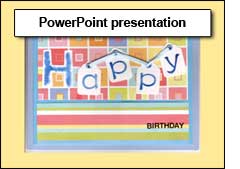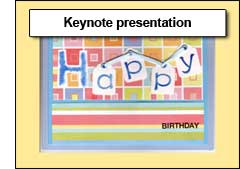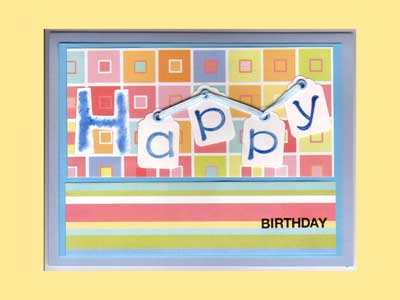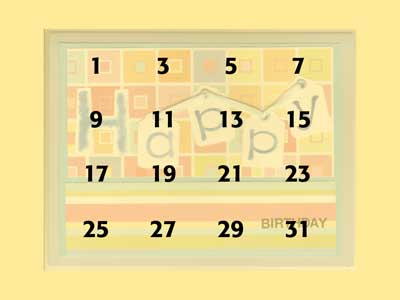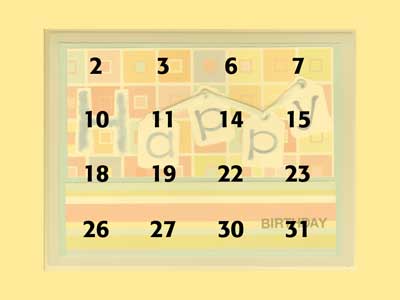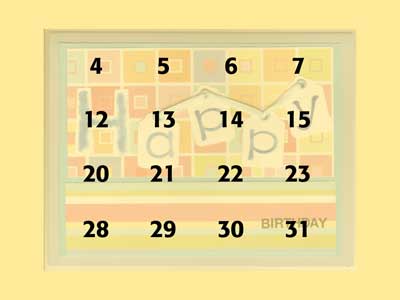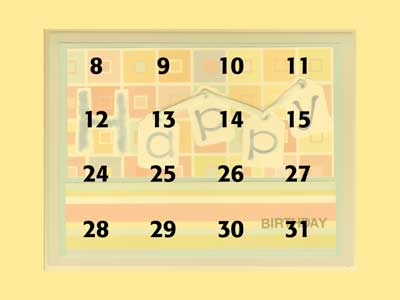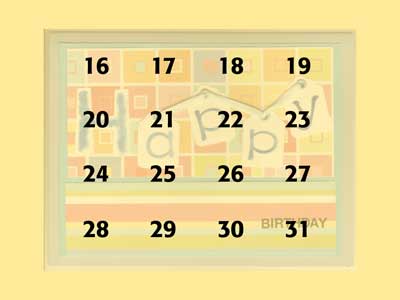
The Birthday Game
Here's the info on the birthday guessing game I sometimes play during a seminar and used to play with my students. It works because of binary math, which is what computers use. By taking advantage of the simplicity of base-two place values-- instead of our traditional base-ten system--you'll be able to guess anyone's birthdate and really amaze the students.
How to Play
Choose a student and have him think of the his birthdate but not say it aloud. Then, show him the first "birthday card" and ask him if he sees his birthdate on the card. If he answers "Yes," store the number in the upper left-hand corner--a 1--in your head. If he answers "No," store a zero and move on to the second card.
If he answers "Yes" to the second card, add the number in the upper left-hand corner--a 2--to the number in your head. If he answers "No," the number in your head doesn't change.
Keep doing this for the remaining three cards. For every "Yes" you hear, add the number in the upper left-hand corner to the number in your head. For every "No," the number in your head stays the same.
After the child has seen all five cards, go into some kind of deep, mental concentration schtick for a moment before you announce, "Your birthdate is the 16th." (Or whatever number you ended up with in your head.)
Try it with your own birthday. (How it works.)
You can download the jpegs I've created--1024 X 768 pixels--or make your own birthday cards.
To get a card:
- Click on it.
- When you see the larger version, right-click (PC) or control-click (Mac) on it.
- Choose "Save Picture As..." (PC) or "Save Image As..." (Mac).
- Create a folder called "Birthday Game" and save the image in your new folder.
- Repeat this process for each card.
![]()
PowerPoint & Keynote
Thought it made sense to offer ready-made presentations. Just click on the image to download the file.
